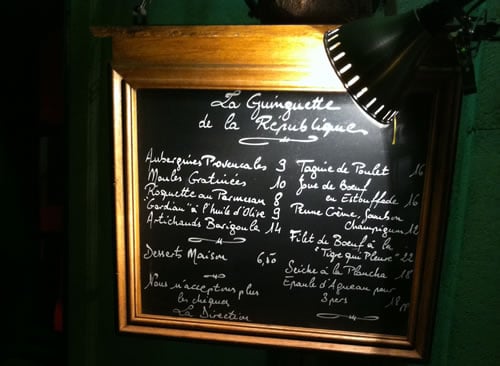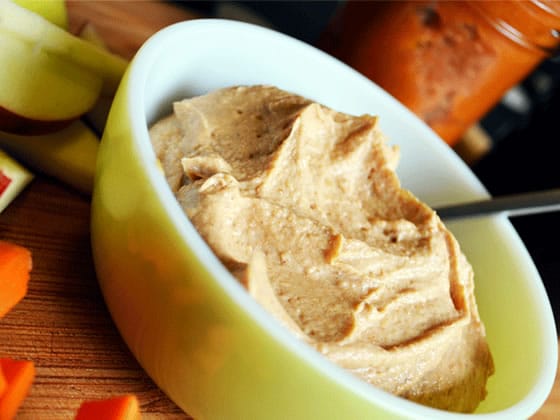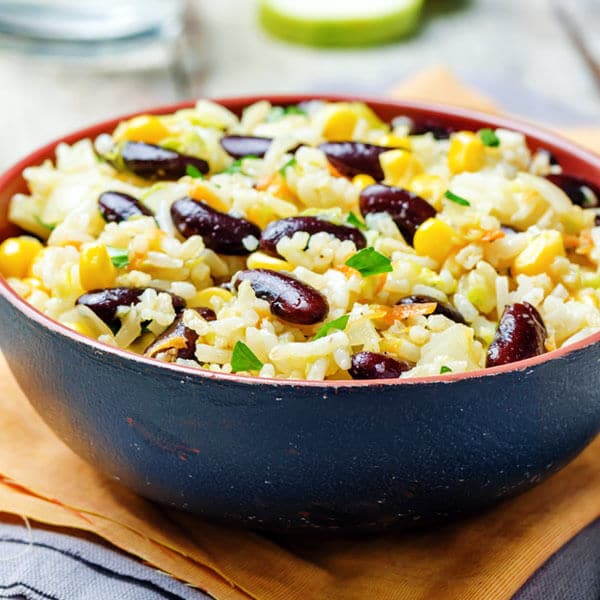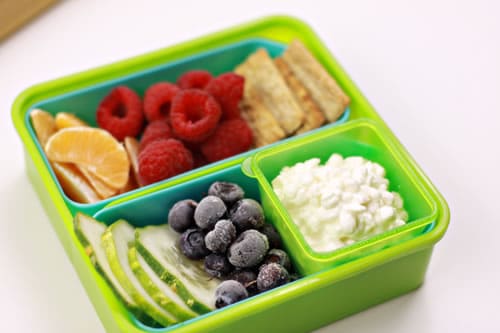The French Paradox
Dec 10, 2010, Updated Dec 10, 2016

Matty and I just returned from a wonderful week in France, celebrating our first anniversary and enjoying some much-needed R&R. I decided not to blog much about the experience while there (and to avoid Twitter almost entirely), partly because I was on vacation, and partly because it felt exceedingly rude and awkward to be whipping out the camera and taking pictures of my food (something most of us have no qualms about doing here in the States!).
We spent the first few days in Paris with our friend Piper, an amazing photographer, host, and tour guide, then took the train down to Montpellier. From there we rented a car and drove to the charming and romantic, 7oo-year-old walled city of Aigues-Mortes (thanks for the recommendation, Mike!).
Naturally, we explored some of the wonderful gastronomy that France has to offer, from fine dining to the best falafel I’ve ever had (really) to the requisite Nutella crêpes on the street.* The food is incredibly rich across the board, but everywhere I look people are fit and trim – at least compared to the U.S. I’m not the first to take notice, of course, as it actually has a name: The French Paradox.
This phrase was first used about twenty years ago, and it primarily refers to the fact that the rates of heart disease are lower in France than the U.S., even though the diet is high in saturated fats. Indeed, everywhere we go there are tons of full-fat cheese and butter (oh, the butter!). According to Wikipedia, the French consume about four times as much butter as we do, 60 percent more cheese, and about three times the pork.
If you Google “French Paradox” you’ll come up with a variety of explanations. Some think it’s the resveratrol in the wine. Some think it’s three meals a day with virtually no snacking in between. I doubt it’s the reseveratrol (the quantities are too low), and you probably already know my feelings about eating less food, more often. Here are my theories as to what’s going on.
People walk. A lot.
Paris reminds me of New York in that there’s a fantastic subway system and the streets are always bustling with people walking with deliberate intention. The streets are also uneven – since they’re hundreds of years old – which requires a bit more agility to get around. (Also helping the parallel: People in New York are doing better than the rest of the U.S.). Even while it was snowing last week, the streets were filled with people navigating the slippery, slushy streets.
Gas is also expensive – about $8 a gallon – and taxis aren’t cheap, either. (One short, seven kilometer cab ride cost us about 25€, or $33). Both are great incentives to use your feet instead of your wheels.
Meals are slower and smaller.
Unlike the U.S., there isn’t 24/7 access to restaurants and food. On our trip we always seemed to have a knack for wanting to eat at the wrong times (thanks, jet lag!), and we often found that restaurants were not serving, or if they were, the staff would look at us like we were lunatics for wanting to eat at 11am or 3pm.
When we did eat, meals were at a much slower pace, often with multiple courses of small portions. This, of course, gives you more time to enjoy your food, taking pleasure in what you’re eating. Perhaps more importantly, it gives more time for fullness signals to travel from your stomach to your brain (there’s generally about a twenty minute delay, so eating slower allows this process time to happen before you’re totally stuffed).
The food is less processed.
Sure, you can find processed food in France, but it’s the exception, not the rule. Evidence is mounting that ultra-processing is a likely contributor to obesity. Once again, fresh, whole foods tend to be better for us overall. Even Weight Watchers recently revamped their points system to incorporate this newfound understanding!
Sugary beverages are rare.
People don’t drink 64-ounce Big Gulps in France – it just doesn’t happen. Soda is a treat, not something to be guzzled with every meal. It also tends to come in much smaller bottles. Sodas are significantly more expensive here, too – a great deterrent. One restaurant on our trip – not a particularly fancy or expensive place – charged 8€ for a Coke. That’s an $11 Coke!
Most juices that I saw for sale were actual, bona fide fruit juices — not juice-flavored sugar water — and again, in much smaller bottles.
Weight is a bigger factor than saturated fat intake.
This is the big one, I think. As the stunt-pulling, twinkie-eating nutrition professor (sigh) recently demonstrated, if you eat nothing but junk food – but still lose weight by keeping your calories down – your cholesterol levels will go down, too. I’m not a fan of his experiment since it could be easily misinterpreted (here’s a great article on Civil Eats about that; well worth the read), but the bottom line is that when you lose that excess 30 pounds, your health will improve across the board.
I’m not saying that if you’re skinny you can eat anything you want… but it sure as heck helps.
Some unanswered questions.
What about Fiber?
This is the one where I’m really not convinced that the French diet is superior. There’s a huge amount of white bread (I have yet to see any 100% whole grain breads here, though I’m sure they exist) and high-fat, rich cheeses (and let’s not forget the butter!) — all of which are low in fiber. But when we want a salad? We’d end up with a plate of romaine lettuce doused in creamy dressing. Maybe they think that’s what we Americans wanted, but it sure was hard to find much roughage in our meals. Considering all of the benefits of fiber, I’m a bit stumped as to how anybody in this country manages to stay regular.
What happens from 6pm to 8pm every night?
I’m stumped on this one, so if you know the answer please help me out. Shops and businesses generally close around 5:30 or 6pm, yet even an 8pm dinner reservation is fairly early. What are people doing for those hours in the evening before dinner? Naptime? Facebook?
All this to say…
There’s a lot to be learned from the way the French eat. The biggest difference, beyond all the measurable criteria, is the relationship the French have with food.
Food is something wonderful in France, something important. In the States, food is something that we have to deal with to survive. The need to eat gets in the way of our busy lives, so we eat standing in the kitchen, we eat over the keyboard, and we eat in front of the television.
The French, instead, have an hour and a half lunch. The first hour is spent enjoying several small courses, and the rest of the time is spent drinking coffee and socializing.
Food is respected there, too. Nearly everywhere we went the quality and taste of the food was outstanding. At the Montpellier train station, for example, we purchased two sandwiches to go from a small pastry counter. They were made fresh to order, not like here, where it would be a pre-made sandwich, pulled out of the glass case and tossed into a 45-second-super-fast toasting oven.
Of course, the culture of work is different in France, too, and that enables much of what I’m talking about. Shops are open for a few hours in the morning, closed for a long lunch, and then open again in the afternoon for a few hours.
There’s not much of a 24/7 attitude here, so everything is slower. It reduces stress. It leaves time to savor, to digest, and enjoy.
—
* Culinary highlight of the trip: Afaria. The food was creative yet unpretentious, and downright heavenly. If you’re in Paris, don’t miss this friendly, neighborhood gem!




















Sounds like a great trip Andrew! I heard a news report the other idea about Paris being in turmoil because of 6 inches of snow. I totally crapped up when I heard that. When I went to Paris for the first time in (never mind – you don’t need to know the year), we saw a college student stop for lunch on the way to the train – he picked up a fresh baguette which was sticking out of his backpack, a hunk of fresh cheese, and a can of wine. When he sat down on the train, he enjoyed his can of wine with bread and cheese. He was on the go, but still eating real food. We still talk about that image to this day. And on our most recent trip, our friends stayed for a month and searched out a new patisserie each day to enjoy. But… Read more »
That 6″ of snow totally shut down the airport on Wednesday (people were barely even able to get to the airport!) — but thankfully it was the day before we were set to leave. Still, getting to the airport on Thursday morning was an absolute nightmare, and once there the lines were insane. However, once we heard stories of thousands of people sleeping on the floors of hotel lobbies and bars on Wednesday night, we stopped complaining.
I’m thinking that the time of year of our trip probably skewed my view of the availability of fresh fruits & veggies. It seemed that there weren’t many around — but perhaps in the Spring and Summer it would have been a completely different story! Guess we’ll just have to go back to find out! 🙂
I lived in Southwest France for four years (and Montpellier –two Ls– itself for a year before that! What a fabulous place to walk, non ?) and before dinner we would get together with friends at home or at the café for apéro (= apéritif = cocktail hour/hanging out), or go walk the dog in the woods or have a bike ride or shop for/prepare dinner. Of course in the winter, the whole schedule moved up and we ate much earlier. Paris is obviously an exception as it’s the big city and if you’re going out to dinner on vacation, it’s nice to eat at a proper late hour.
When I moved back to the States, I was absolutely shocked to see obese people –including children– every day. I still am.
Thanks for the Montpellier spelling catch – it’s fixed. 🙂
All of those pre-dinner activities sound great! And sadly, I’m no longer shocked when I see obese children in the U.S…
Jealous doesn’t even begin to describe it!
Sorry, Q! 😉
Love this post!
I’ve been trying to eat the French way (except for the white bread) since May. I’ve lost 30 lbs.
Now to get the more sleep part! I’ve been getting up early to take care of a new grandbaby.
My theories on the 6-8 in the evening…
1) naptime/sex time
or
2)dinner prep and commute time.
Viki – Congratulations on the weight loss! That’s fantastic! Changing your diet in a holistic way rather than a diet in the crash-diet sense is the way to go, because that’s the only way you’ll be able to maintain your weight later. Sounds like that’s what you’re doing – bravo!
Congrats also on the new grandbaby! 🙂
Hi Ya’ll, From six à sept { six to seven} Traditionally, a time when men spent with their mistresses. The French people finish their day as pointed out 5.30-6pm. Business people work much later. Kids finish schooling and have some sort of class like Ballet after school as well as dealing with homework. Since the French eat as a family–people have Le Goûter–a snack {the ONLY acceptable snack} to tide them over but too much to ruin dinner. The French family i worked for, two years ago –the mom explained it to me. The little girl was two when i hired & this was the schedule all three kept. i worked from 8.45am til 6pm with a 2 hour break from 12.30-2.30 {the little girl eat her lunch at noon & went off to bed at 12.30} The mom is a petite size 4 & is currently pregnant, she’s due… Read more »
Thanks for the info and for sharing your experience! Very interesting that lunch was their largest meal… I’ve heard before that that’s a good way to go, but clearly here in the states we never seem to do that…
I suspect that after work, everyone who’s going out to dinner would shower and get dressed up, and those staying home might spend an hour or two making dinner. But since it’s so expensive to live in Paris, maybe a lot of people have long train commutes home.
Just my guess; I’ve never been there (yet! maybe someday). Happy anniversary.
Thanks, M! 🙂
I think the men are with their mistresses from 6PM-8PM. Don’t know what the women are doing though.
After reading this, I think I must have french genes! I love their culture. My mom’s maiden name is “Gaudier” which I believe is french, so there you go!
Seriously, France sounds like an amazing place to live, not just visit. Merci beaucoup for sharing your trip with us!
Glad you liked the writeup. I’ll be sure to go on more trips ASAP so I can share those with you, too! Hmm…wonder what the food is like Spain? 🙂
That falafel you had sounds awesome! Next time I’m in Paris I’ll check it out. So far the best one I’ve had was in Berlin. Go figure.
Maybe they all take siesta in the early evening, similar to Spain? I’ve heard that sleep deprivation also negatively contributes to overall health, so maybe a culture that embraces naptime also figures into the Paradox?
The falafel sandwich was truly amazing… The falafels were crunchy on the outside, but moist and tender on the inside, bursting with flavor. They were resting on a bed of shredded cabbage and other veggies, with the most exciting sauces. A far cry from the usual bed of iceberg and sliced tomatoes!
Getting enough sleep is definitely key to overall health and weight loss/management. My theory, though, is that it’s at least in part because you’re awake for fewer hours of the day, so you therefore have less time to shovel food down your gullet! 😉
Happy Anniversary to you and Matty! I admit I’m a little envious about your trip to France. I’ll make it there one day. I love that you wrote about the French Paradox. Dr. Mark Hyman has a full chapter on it in his book, UltraMetabolism. You hit all the points he hit in that chapter. Walking, fresh ingredients, and taking time to really eat while socializing.
I don’t know what they do between 6 ad 8pm, but if I ever find out, I’ll let you know!
Thanks, Debi! The trip was wonderful, and I highly recommend it. However, I’d recommend not going in the winter! Paris isn’t equipped to handle much snowfall (thankfully we flew home on Thursday, not Wednesday — when all the flights had been cancelled!).
I hadn’t heard of Ultrametabolism before. I’ll definitely check it out — thanks!